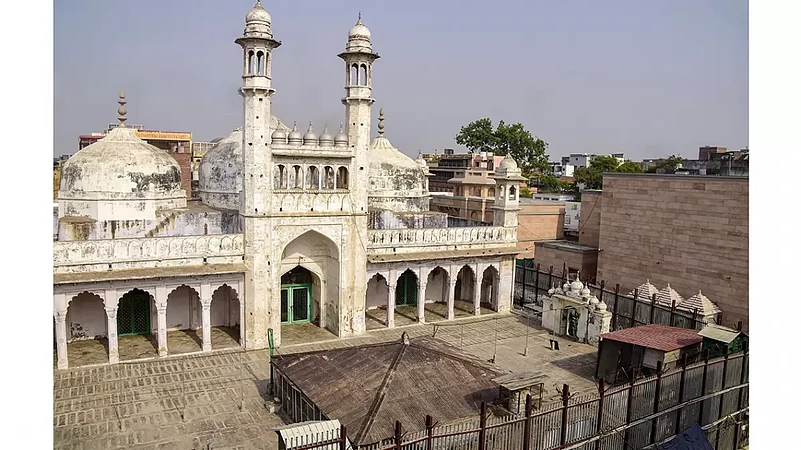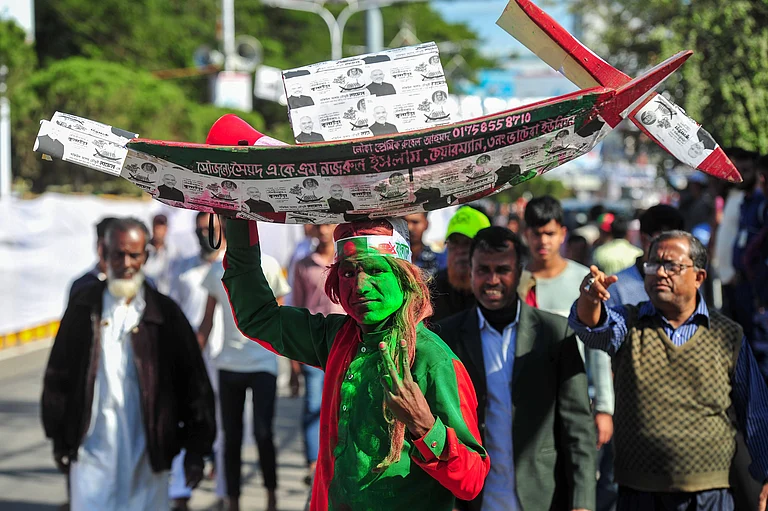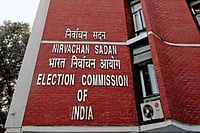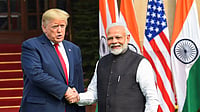The Allahabad High Court today fixed November 30 for hearing a revision petition challenging the Varanasi district judge's order by which the lower court had refused the demand of carbon dating of a 'Shivling' claimed to have been found in the Gyanvapi mosque complex.
Justice J J Munir passed the order on the revision plea filed by Laxmi Devi and others.
On October 14, Varanasi District Judge A K Vishvesh turned down the plea seeking scientific investigation and carbon dating of the 'Shivling', citing Supreme Court directives for its safekeeping so that no tampering can be done.
When the matter was taken up in the high court on Monday, counsel for the Archaeological Survey of India submitted that an application has been moved for an extension of time for the survey. However, the court commented that there should be no damage to the 'Shivling'. Then the ASI's counsel said that there are more ways to determine the age and no damages could be caused.
On behalf of the Anjuman Intezamia Committee which manages the Gyanvapi mosque, it was said that a 'vakalatnama' has to be filed in the meantime. 'Vakalatnama' is a written document signed by a client to allow his advocate to plead a case in court on his behalf.
Four of the five Hindu parties had sought carbon dating of the 'Shivling' found during a court-mandated videography survey of the mosque premises close to the "wazookhana", a small reservoir used by Muslim devotees to perform ritual ablutions before offering Namaz.
The revision petition has sought an appropriate survey or excavation to find out the nature of construction beneath the 'Shivling' discovered on May 16, 2022.
The Hindu parties have also sought a scientific investigation by carbon dating to determine the age, nature and other constituents of the 'Shivling' in accordance with the provisions of The Ancient Monuments and Archaeological Sites and Remain Act, 1958.


























